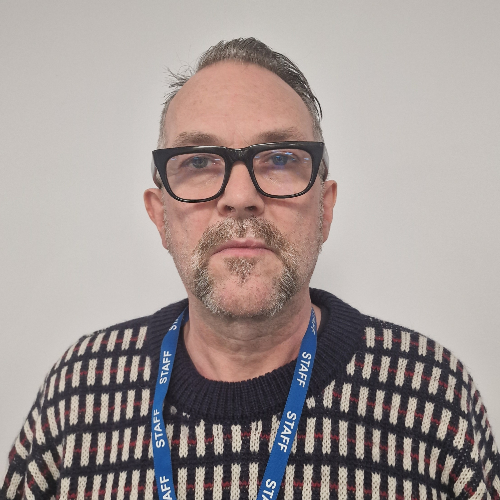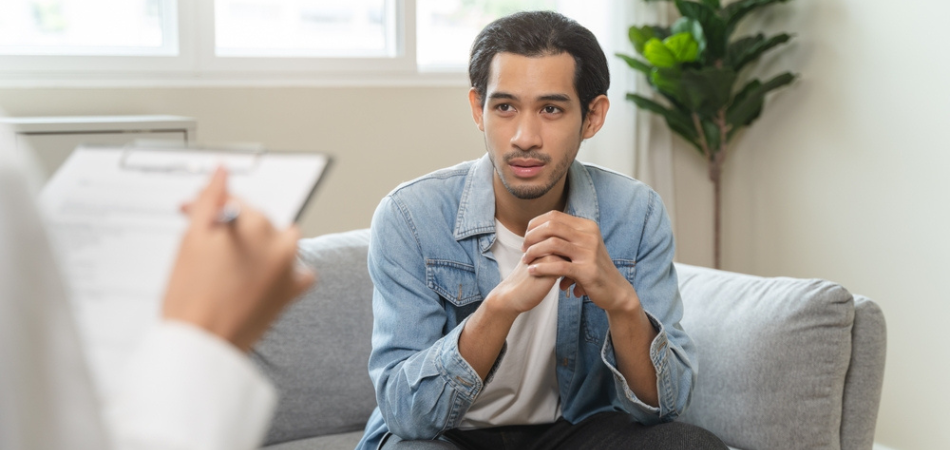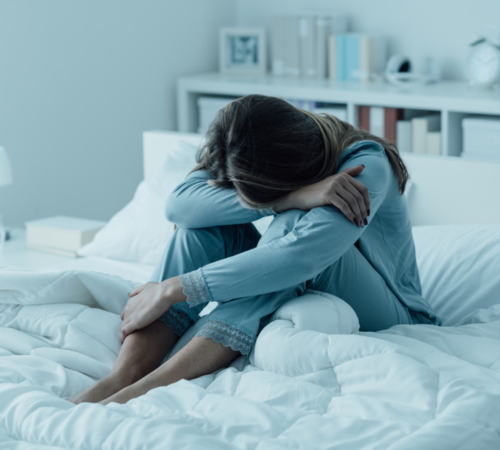
Written by:

Medically Reviewed by:
Last Updated:
March 4th, 2025
GBL Addiction Treatment | Detox & Rehab
If you have decided to begin treatment for GBL addiction, you have already taken the first and most difficult step. Linwood House is committed to making the rest of your journey to recovery as easy as possible with our proven GBL addiction treatment programmes. Combining medically guided detox, inpatient rehab treatment and ongoing support once you leave our centre, we can help you withdraw from GBL safely, work through the causes of your dependency one-by-one and help you set sober foundations to build a new life upon.
GBL detox – Physical healing
When people think of treatment for GBL addiction, it is often detox that they picture. While this overlooks the importance of the other stages of treatment, GBL detox is a critical recovery starting point.
GBL detox is when you stop taking GBL so your body can clear what is left in your system. This helps to kickstart the healing process and prevents cravings or other withdrawal symptoms from distracting you during rehab therapy.
Detoxing from GBL on your own can be dangerous because it is a potent drug that causes intense withdrawal symptoms. At Linwood House, our medical detox team will take charge of your detox, creating a plan based on your health and needs and making sure that any discomfort is minimised.
GBL withdrawal – Clearing your systems
Imagine your body is like a sponge that has been soaking up GBL during your drug use. Drug detox is like squeezing that sponge and drying your systems out. However, because your body has got used to the presence of GHB (the chemical that GBL becomes when ingested), it is temporarily shocked when levels suddenly drop.
This is what triggers GHB withdrawal, a challenging but important process of physical restoration. Everyone has their own experience but some GBL withdrawal symptoms you are likely to experience include:
- Agitation
- Anxiety
- Extreme sweating
- Increased blood pressure and heart rate
- Insomnia
- Mood and mental health issues
- Muscle aches
- Tremors
Your GBL withdrawal timeline may also be slightly different to someone else going through GBL detox, but it will usually start on the first day and progress something like this:
Day one
If you have ever tried and failed to quit GBL, you know that the first GBL withdrawal symptoms can appear very quickly. As well as strong GBL cravings, the first twenty-four hours may see you become increasingly anxious, sweaty and unable to sleep.
Day two to five
This is usually when GBL withdrawal symptoms become the most intense, and it is when many people who attempt to detox alone end up relapsing. At this point, the early GBL withdrawal symptoms may be joined by tremors, high blood pressure and heart rate, more intense anxiety and possibly mental and mood disturbances. All of these can be very tough to deal with but your detox team will give you guidance and reassurance and may also administer some medicine to take the edge off.
Day five onwards
As the week goes on, GBL withdrawal symptoms should become far less intense. Most people find that all physical symptoms have ceased by the end of the first week, with just a few lingering mental or mood symptoms. A few people, especially those with other health issues or who have a long history of GBL use, may experience many weeks of ongoing withdrawal symptoms which need further medical assistance.
GBL rehab – Mental and emotional healing
Detox is necessary because it repairs the damage done by GBL and breaks physical dependence. However, we now understand that drug addiction is about far more than just a physical reliance on a substance. GBL rehab is intended to find out why you started taking GBL and the reasons that you have become mentally or emotionally dependent on it.
For some people, GBL may be used to combat stress or self-medicate for underlying mental health problems. For others, it may have started out as a party drug, a means to become more confident in social situations where they feel anxious. Drug rehab will get to the bottom of your root causes, allowing you to manage, overcome or resolve them without needing GBL.
GBL rehab therapy – Leaving no stone unturned
Because everyone has their own set of factors and personal issues that have led to GBL dependency, Linwood House offers a wide range of treatment therapies. Each can teach you something about yourself, provide new insights into your past and help you understand how your experiences have led you to this point.
Once armed with this new understanding, you can then begin to build a life where negative thoughts, feelings and memories no longer control you and where you can choose to live without GBL.
Some of our most important therapies include:
Group therapy
Group therapy brings people together to share experiences and create community. It gives you a chance to learn from each other’s successes and setbacks, gaining new perspectives on your own recovery GBL addiction and recovery journey.
One-to-one therapy
In one-to-one therapy, you work directly with a therapist to explore your personal history with GBL. These private sessions are focused entirely on you, providing more individualised support than possible with group therapy.
Cognitive behavioural therapy
CBT helps you spot the negative thoughts that push you towards using GBL and teaches you how to change them. It provides practical skills for managing your feelings and actions better, helping you stay on track with your recovery for the long haul.
Dialectical behaviour therapy
DBT is similar to CBT but with a stronger focus on managing intense emotions. It teaches skills for handling emotional crises, improving relationships and building a more balanced life.
Family therapy
Family therapy gets everyone together to talk about issues caused by GBL. It can help improve communication, fix your relationships and make sure everyone supports your journey to stay sober.
GBL relapse prevention – Guidance, support and accountability
Even after you have completed GBL detox and rehab, staying sober is a journey. Linwood House’s relapse prevention is all about helping you keep on track and avoid falling back into old habits. Some key strategies in our plans include:
Aftercare
Our aftercare programme provides free group therapy every week for the first year after your treatment programme. It is designed to offer ongoing motivation and to provide a safety net when things get tough.
Trigger management
During your time at Linwood House, you will work with your therapists to figure out what triggers your cravings, the warning signs to look out for and how to handle them. This awareness and proactivity can stop these problems from derailing your recovery.
Learning new coping skills
Learning new ways to cope with stress and difficult emotions can stop you from resorting to GBL to cope. At Linwood House, you will learn techniques to navigate tough situations both during and after rehab.
Living a more healthy lifestyle
A happy, healthy life reduces the temptation to use GBL, so it’s important to make lasting, positive changes. This means finding hobbies you love, spending time with supportive people and making positive changes to your routine.
Begin treatment for GBL addiction
Taking the first step towards recovery is the hardest but you have already taken it by researching GBL addiction treatment. Now, let Linwood House guide you the rest of the way. Our proven GBL addiction treatment programmes combine medically guided detox, comprehensive rehab and ongoing support to give you the best chance for a full and lasting recovery. Reach out to Linwood House today to get started.


